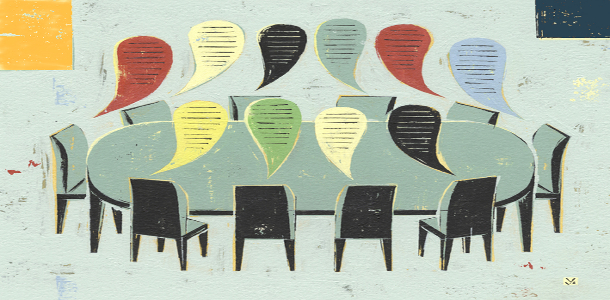Posted by laurajane on Jun 24, 2014 in Uncategorized | Comments Off on Add flavor to your writing with colorful turns of phrase





11 weird spelling facts
Not to put too fine a point on it, English spelling rules are just weird. We have words that sound the same but are spelled differently (such as “their,” “they’re,” and “there”); words with letters that have nothing to do with how the word is pronounced (“brought,” “although”); words that contain silent letters (“gnat,” “pneumonia”); and words that simply don’t follow any spelling rules. Here’s a look at 11 weird, random facts about English spelling. Not sure this will make our jobs as writers and editors any easier, but it’s a nice...

Posted by laurajane on Jun 12, 2014 in Uncategorized | Comments Off on 36 redundant phrases to eliminate from your writing
36 redundant phrases to eliminate from y...
As writers, editors, and PR professionals, we are keenly aware of having to fight for readers’ attention. My daily sanity check is to ask, “Is someone actually going to read this?” One way I’ve found to help readers is to use concise language and eliminate redundancies. As Strunk and White advise, “Make every word tell.” Below is a list of phrases in which every word does not tell. These phrases are redundant, repetitive, wordy, and verbose. Paring phrases such as these is an easy way to tighten your writing. (Redundant words are italicized.) • added...

Posted by laurajane on Jun 4, 2014 in Uncategorized | Comments Off on What kind of a word nerd are you?
What kind of a word nerd are you?
There’s only one thing more annoying than having a “selfie-obsessed” friend on Facebook: having a friend who is constantly taking those “What kind of ______ are you?” quizzes and sharing the results. I’ve seen: “What kind of best friend are you?”; “What kind of cupcake are you?”; “What kind of coffee drink are you?”; “Which ‘Little House on the Prairie’ character are you?” What’s next? “What kind of fungus are you?” However annoying it is, this phenomenon has inspired me to develop my own quiz. It’s called, “What kind of word nerd...

Posted by laurajane on May 28, 2014 in Uncategorized | Comments Off on Write more better . . . a look at comparative and superlative adjectives
Write more better . . . a look at compar...
Bart Simpson: This is the worst day of my life. Homer Simpson: The worst day of your life so far. My first grader has worked hard this school year learning to write basic sentences.One area he struggles with is adjectives. He often writes “I have the bestest pet ever” or “Soccer is more harder than baseball.” As professional writers and editors, PR Daily readers aren’t making these kinds of mistakes. But the rules for comparative and superlative adjectives can be tricky. Not all adjectives have comparative forms (such as the word unique) and many adjectives have...

Posted by laurajane on May 20, 2014 in Uncategorized | Comments Off on 9 sources to help you find that perfect word
9 sources to help you find that perfect ...
I once worked with someone who used the word “secure” continually. He’d write: • “We need to secure donations.” • “Have you secured a printer for the newsletter yet?” • “I’m not feeling secure about our chances of securing this contract.” I often found myself correcting his writing and replacing “secure” with alternatives such as “obtain,” “get,” “acquire,” “find.” But he was set on the word “secure” and would often change it back. The importance of varying our words to keep our readers interested cannot be overstated, but...

Posted by laurajane on May 13, 2014 in Uncategorized | Comments Off on 10 more ways to make the writing process less hellish
10 more ways to make the writing process...
In a previous post, I shared 15 tips to make the writing process less grueling. On the list were: Write first, edit later; read your work aloud; and don’t bristle when another writer or editor corrects your work. At the end of the post, I asked PR Daily readers to share their writing tips. Here are some of those responses, along with a few more. The less hellish we can make our work, the better. 1. “Be ruthless in editing your own stuff. One writer who worked for me described my editing style as ‘Texas Chainsaw Massacre,’ and I took that as a compliment.” 2....













